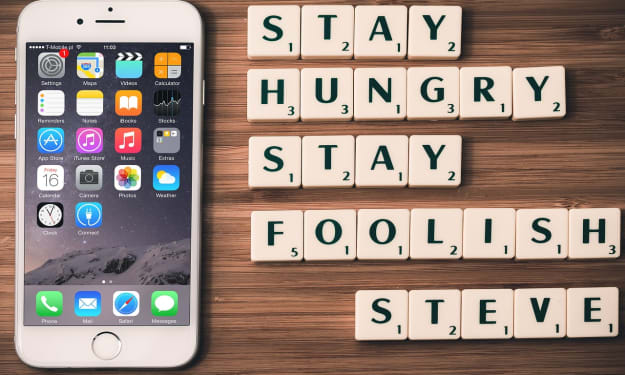
1. Introduction
2. Importance of Conflict Resolution in Job Interviews
3. Conflict Resolution Interview Question 1: How do you deal with conflict?
• Addressing conflict quickly and amicably
• Importance of resolving conflict for the team's progress
• Steps to prevent conflict escalation
4. Conflict Resolution Interview Question 2: Tell me about a time when you had a disagreement with a co-worker
• Common mistake candidates make in answering this question
• Example answer highlighting a professional approach to resolving the conflict
5. Conflict Resolution Interview Question 3: Tell me about a time when you had a disagreement with your boss
• The difficulty of this question and the importance of a respectful approach
• Example answer demonstrating confidence and putting the company's best interests first
6. Conflict Resolution Interview Question 4: How do you deal with angry customers who complain about your products or services?
• Emphasizing the importance of winning customers' loyalty
• Example answer showcasing active listening and proactive resolution
7. Conclusion
8. FAQs
1. How can conflict resolution skills benefit my career?
2. Are conflict resolution interview questions common?
3. What if I don't have prior experience with conflict resolution?
4. How can I prepare for conflict resolution interview questions?
5. Where can I find more resources to improve my interview skills?
________________________________________
Answering Difficult Conflict Resolution Interview Questions
Introduction
In this article, we will discuss how to effectively answer difficult conflict resolution interview questions. Job interviews often include questions about conflict resolution to assess a candidate's ability to handle challenging situations and work well with others. By understanding the common conflict resolution interview questions and preparing thoughtful responses, you can stand out as a standout candidate and increase your chances of success in any job interview.
Importance of Conflict Resolution in Job Interviews
Conflict resolution skills are highly valued in the workplace as they contribute to a harmonious and productive work environment. Employers seek candidates who can navigate conflicts and disagreements while maintaining professionalism and collaboration. By showcasing your ability to handle conflict effectively, you demonstrate your aptitude for teamwork, problem-solving, and maintaining positive relationships with colleagues and customers.
Conflict Resolution Interview Question 1: How do you deal with conflict?
Addressing conflict quickly and amicably is essential to maintain a cohesive and efficient team. While passionate discussions can be beneficial, any form of conflict has the potential to hinder progress and create disharmony among co-workers. When answering this question, emphasize your commitment to resolving conflicts promptly and positively for the sake of the team.
Example Answer:
"Honestly, I always strive to resolve conflicts as quickly and amicably as possible. While passionate discussions can sometimes lead to creative solutions, I firmly believe that conflicts should never hinder a team's progress. Whenever I notice a conflict, I take the initiative to understand its root causes, the parties involved, and the necessary steps to prevent it from escalating further. By addressing conflicts proactively, I aim to foster a harmonious work environment and maintain a strong team dynamic."
Conflict Resolution Interview Question 2: Tell me about a time when you had a disagreement with a co-worker
This behavioral interview question is commonly asked to gauge how you handle conflicts with colleagues. Many candidates make the mistake of suggesting that they would report the disagreement to their manager. However, the hiring manager is interested in understanding your ability to resolve conflicts independently and professionally. When answering this question, focus on how you approached the disagreement while considering the team's best interests.
Example Answer:
"During my previous role, there was a situation where a co-worker and I had differing opinions on the best approach to complete a project. Our contrasting work styles led to escalating tension as we continued discussing our viewpoints. Realizing the impact on the team, I decided to prioritize the project's success over personal preferences. I agreed to follow my co-worker's approach, but we established a system for regular progress reviews. As we progressed, it became evident that a certain aspect of their approach wasn't effective. We reconvened, and together we decided to incorporate one of my original suggestions, which turned out to be a perfect fit. I believe that by managing the conflict professionally and smartly, we ensured project progress and timely delivery while fostering a positive working relationship."
Conflict Resolution Interview Question 3: Tell me about a time when you had a disagreement with your boss
Handling conflicts with your boss requires tact and diplomacy. While most candidates claim they never disagreed with their boss, acknowledging a respectful disagreement can actually portray you as someone who genuinely cares about the company's success. When responding to this question, focus on your professional approach and your willingness to express your opinion while maintaining a respectful tone.
Example Answer:
"Although I don't often find myself in disagreements with my boss, I believe in voicing my thoughts when I genuinely believe there's a better approach. In a previous role, when I first started working, I noticed my boss tended to micromanage my tasks. While I appreciated their intentions, I felt that I could work more efficiently without constant supervision. I decided to address this issue professionally and respectfully. I explained that, based on my previous work experience, I performed better when someone wasn't constantly watching over me. I assured my boss of my competence and commitment to delivering high-quality work. Although my boss appeared surprised initially, I believe they appreciated my input, as it allowed them to focus on more critical tasks. By handling the disagreement constructively, I maintained a positive working relationship while highlighting my dedication to achieving the best outcomes for the company."
Conflict Resolution Interview Question 4: How do you deal with angry customers who complain about your products or services?
Managing customer complaints requires empathy, active listening, and a commitment to providing excellent service. It's crucial to handle such situations professionally and go the extra mile to win back the customer's satisfaction. This question aims to assess your customer service skills and your ability to handle difficult interactions with customers.
Example Answer:
"Whenever I encounter an angry customer who complains about our products or services, my primary goal is to resolve the issue and turn their negative experience into a positive one. I begin by actively listening to the customer, allowing them to express their concerns fully. I then ask probing questions to better understand the root cause of the problem. If our company is at fault, I sincerely apologize to the customer and explain the steps I will take to rectify the situation. Throughout the process, I provide regular updates to the customer to keep them informed about the progress of the resolution. Once the issue is resolved, I follow up with the customer to ensure their satisfaction. Additionally, I analyze the situation to identify any lessons that can be learned and implement preventive measures to avoid similar problems in the future. By prioritizing exceptional service, I aim to retain customer loyalty and enhance the company's reputation."
Conclusion
Conflict resolution skills are integral to succeeding in job interviews and the workplace at large. By effectively addressing conflict resolution interview questions, you can demonstrate your ability to handle challenging situations, collaborate with others, and maintain positive relationships. Remember to approach conflicts with a focus on timely resolution, professionalism, and the best interests of the team and the company. Developing strong conflict resolution skills will not only help you excel in interviews but also contribute to your overall career growth and success.
________________________________________
FAQs
1. How can conflict resolution skills benefit my career?
Conflict resolution skills are highly valued in the workplace as they contribute to better teamwork, enhanced communication, and improved problem-solving. By demonstrating effective conflict resolution skills, you can build positive relationships, create a harmonious work environment, and navigate challenging situations successfully, leading to career advancement opportunities.
2. Are conflict resolution interview questions common?
Yes, conflict resolution interview questions are quite common. Hiring managers ask these questions to assess a candidate's ability to handle conflicts, work well with others, and contribute to a positive team dynamic. By preparing thoughtful answers to these questions, you can showcase your skills and differentiate yourself from other candidates.
3. What if I don't have prior experience with conflict resolution?
Even if you don't have direct experience with conflict resolution in a professional setting, you can draw upon relevant situations from other aspects of your life. Consider instances where you successfully resolved conflicts with friends, family members, or teammates in extracurricular activities. The key is to demonstrate your ability to navigate disagreements, find common ground, and work towards positive resolutions.
4. How can I prepare for conflict resolution interview questions?
To prepare for conflict resolution interview questions, start by identifying common scenarios or situations where conflicts may arise in the workplace. Reflect on your experiences, both personal and professional, and think about how you handled those conflicts and the outcomes. Practice articulating your responses clearly and concisely, focusing on the key points that highlight your ability to resolve conflicts in a constructive and positive manner.
5. Where can I find more resources to improve my interview skills?
There are various resources available to enhance your interview skills. You can explore online platforms that offer interview preparation courses, watch video tutorials on interviewing techniques, or read books specifically tailored to interview success. Additionally, reaching out to career coaches or seeking guidance from professionals in your field can provide valuable insights and advice to improve your interview performance





Comments
There are no comments for this story
Be the first to respond and start the conversation.